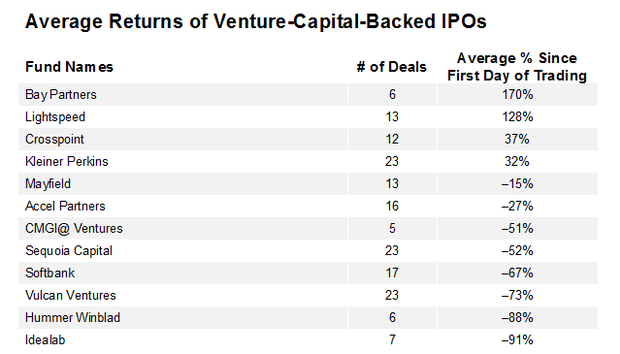Facebook: Why most IPO investors strike out
(MoneyWatch) As the value of -- and hype around -- Facebook's (FB) IPO keeps growing, the question for investors isn't how much money the social networker will raise, but whether they're likely to make money on their investment. History isn't written in advance, of course, but here's what the historical records suggests: No.
Venture capital firm Accel Partners, Facebook's largest outside shareholder, recently boosted the number of shares its offering in Facebook's IPO to 49 million, or roughly one-third of the shares held in one of the firm's funds. If the shares end up in the middle of the IPO's $34-$38 price range, Accel would earn roughly $1.7 billion, not counting the value of the remaining shares not up for sale. Not a bad return on the $12.7 million the VC firm originally paid for 11 percent of the company in 2005.
Some observers have noted how much of a boost this IPO will be for Facebook's venture capital backers, not only for the money they'll see, but also for the prestige. The success of VC firms can lead investors to believe they can increase their odds of finding winning IPOs by purchasing the offerings of companies that had received early funding from big-name venture capital funds.
Obviously these are highly sophisticated investment firms that had performed thorough due diligence on their investments before proceeding. Let's look at the results of such a strategy. In late 2000, BusinessWeek examined the returned of IPOs backed by large venture capital firms. The following are the returns of IPOs launched between Jan. 1, 1999, and June 30, 2000 (The returns are market-cap weighted returns through Nov. 8, 2000.)
If we averaged 12 venture firms' returns, the average would be -8 percent. In addition, only four of the 12 firms had invested in companies whose IPOs show positive returns.
CBS MoneyWatch's full coverage of the Facebook IPO
Facebook's IPO by the (important) numbers
VIDEO: Facebook "like" a powerful advertising tool
IPOs certainly provide investors with the possibility of finding the next Microsoft (MSFT) or Apple (AAPL). They also may provide excitement for some investors. However, as the evidence has shown, they don't seem to be good bets to add to your portfolio.
